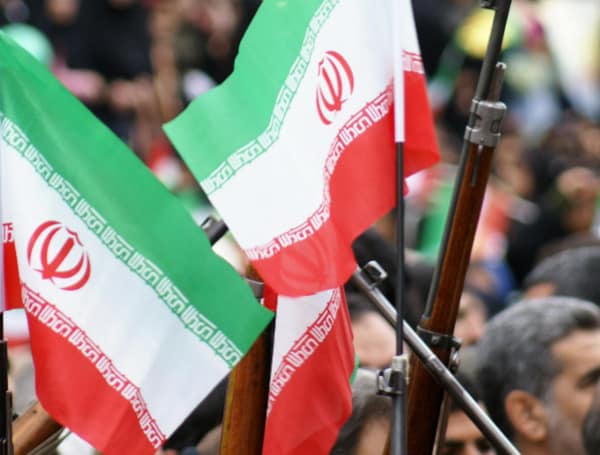The Iraqi federal government is reportedly weighing a controversial plan to integrate Iranian-backed militias into the country’s armed forces, raising concerns about deeper Iranian influence within Iraq’s security sector.
According to sources cited by Iraqi media on January 9, the integration could include Harakat Hezbollah al Nujaba, Kataib Hezbollah, and Kataib Sayyid al Shuhada—all militias closely aligned with Iran.
The report follows a recent meeting between Iraqi Prime Minister Mohammad Shia al Sudani and Iranian Supreme Leader Ayatollah Ali Khamenei, during which the two leaders reportedly agreed to preserve Iraq’s Popular Mobilization Forces (PMF). The PMF is a state-recognized security entity that includes several militias with strong ties to Tehran, including the aforementioned groups.
READ: Iran Allegedly Fomenting Sectarian Unrest To Undermine Syrian Interim Government
Sources indicate that the Iraqi federal government is considering reflagging PMF brigades as new units within the national armed forces. While this move would nominally integrate the militias into Iraq’s formal military structure, it would likely retain their existing composition and command structures, allowing these groups to operate with greater legitimacy and institutional access.
Shafaq News reported, “The discussion focused on the Popular Mobilization Forces file and its future, as the two sides agreed not to dissolve it under any pressure or justification, while stressing the adoption of official mechanisms to restrict weapons to the state, in a way that ensures strengthening the rule of law and achieving internal stability.”
This proposal aligns with Khamenei’s apparent opposition to dissolving the PMF outright. Instead, the Iranian leadership may favor integration as a means to solidify the militias’ role within Iraq’s security apparatus, further entrenching Iranian influence.
READ: US Strikes Houthi Weapon Facilities In Yemen After Attacks On Navy Warships: CENTCOM
The potential integration of these militias has sparked alarm among Iraqi and international observers. By embedding Iranian-aligned militias into Iraq’s official military, Tehran could secure greater leverage over Iraq’s security policies and operations. This move could also complicate efforts to curb sectarian tensions and weaken Iraq’s sovereignty by fostering deeper divisions within its armed forces.
Critics argue that such integration would not only bolster Iran’s foothold in Iraq but also undermine efforts to build a unified and independent Iraqi security establishment. The militias in question have been accused of pursuing sectarian agendas and operating outside the framework of Iraqi law, raising questions about their suitability for inclusion in a national security force.
The PMF was established in 2014 as a coalition of militias to combat ISIS, gaining state recognition and significant influence in the process. While some PMF factions have operated under the Iraqi government’s command, others, particularly those backed by Iran, have retained autonomy and often pursued Tehran-aligned objectives.
READ: U.S. Officials Warn Of Potential ISIS Resurgence Amid Syrian Turmoil
Harakat Hezbollah al Nujaba, Kataib Hezbollah, and Kataib Sayyid al Shuhada are among the most prominent Iranian-aligned factions within the PMF. Their integration into Iraq’s armed forces could legitimize their presence while effectively granting Iran deeper access to Iraq’s security framework.
The integration plan is likely to face pushback from Iraqi political factions, civil society groups, and international stakeholders concerned about the implications for Iraq’s stability and independence. The United States and its allies, in particular, have long viewed Iranian-backed militias as a destabilizing force in the region and may voice strong opposition to the proposal.
Domestically, the integration could exacerbate tensions between Iraq’s diverse political and sectarian groups, many of which oppose Iranian interference in Iraqi affairs. The move risks deepening divisions within the country’s political landscape and undermining public confidence in the neutrality and effectiveness of Iraq’s armed forces.
The decision to integrate Iranian-backed militias into Iraq’s military represents a pivotal moment for the country’s security and sovereignty. If implemented, it could significantly reshape the balance of power within Iraq’s armed forces, with far-reaching implications for regional stability. As discussions continue, the Iraqi government will face intense scrutiny and pressure to ensure that its actions align with the nation’s broader interests and sovereignty.
Please make a small donation to the Tampa Free Press to help sustain independent journalism. Your contribution enables us to continue delivering high-quality, local, and national news coverage.
Connect with us: Follow the Tampa Free Press on Facebook and Twitter for breaking news and updates.
Sign up: Subscribe to our free newsletter for a curated selection of top stories delivered straight to your inbox.

